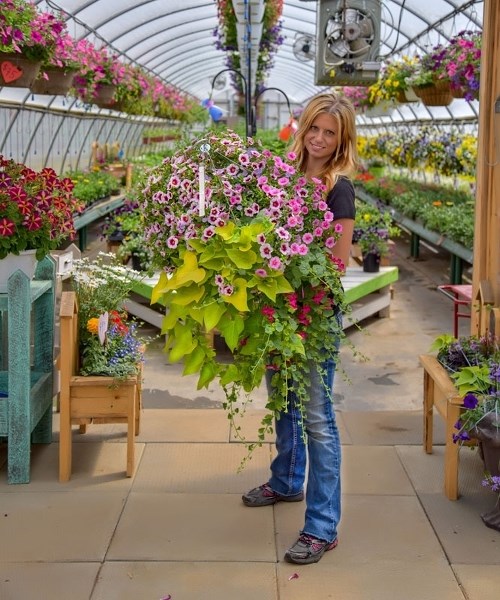The new carbon levy came into effect Jan. 1, 2017 and just hours before the provincial government announced that greenhouse owners would receive a rebate on their costs.
Greenhouse growers will be eligible to receive up to 80 per cent back on the costs of the new tax. The finer details of the rebate have not been ironed out yet.
The rebate will help put Alberta growers on equal footing with their B.C. counterparts. B.C. has had a carbon tax and rebate program since 2012 that offers an 80 per cent rebate for greenhouses.
“This is good news for our industry,” Debbie Foisy, president of the Alberta Greenhouse Growers Association and Owner of Deb’s Greenhouse in Sturgeon County, said. “Getting this rebate helps us remain equally competitive with our neighbouring province.”
Foisy said the industry hired a lobbyist who had been working with the government since the end of July to help advocate for a rebate program.
Without the rebate, greenhouses across the province had been anticipating a 30 per cent to 50 per cent increase on heating bills, depending on the type of operation.
Jim Hole of Hole’s Greenhouse said those that would have been hardest hit without a rebate are those owners growing cucumbers and tomatoes. He said they are up against stiff competition from B.C. growers and would struggle to compete with prices across the border without the rebate from the government.
Hole said some greenhouses, such as his, are able to ramp down in January when it is cold, to save on heating costs and reduce the amount of natural gas burned in the greenhouse, but those growing vegetables are not able to cut those costs.
“The additional costs of heating the greenhouse – particularity in the wintertime – it makes a big difference,” Hole said.
Foisy said greenhouses across the province had planned to cut costs caused by the carbon levy by slimming down on staff. Despite the rebate she says that growers will still have to eat the remaining 20 per cent of the tax and will still have to cut costs. She says most growers will likely still have to cut staff.
“We still have to find ways to cut costs,” Foisy said. “We can’t just raise the price of everything.”
Alberta greenhouses compete most with their counterparts in B.C. and Ontario in the bedding plant industry. Foisy said that $50 million worth of bedding plants were imported from B.C. into Alberta last spring.
Foisy says that the rising costs of the Alberta minimum wage makes it difficult to compete with growers from other provinces. Foisy said that greenhouses will see a shift in the way they hire.
“It’s a good job for high school students, but are you going to pay a high school student what you would an experienced adult?” Foisy said. “There is training and stuff that goes along with hiring younger kids. I think that we will see a shift in who is being hired.”
The Alberta Greenhouse Growers Association will continue to work with the government to ensure the accessibility of the rebate program will be as seamless as possible with the lowest administration costs possible.
The carbon tax took effect on Jan. 1, 2017. Carbon is now priced at $20 per tonne, equal to about $1.011 per gigajoule of natural gas and 4.49 cents per litre of gasoline.




